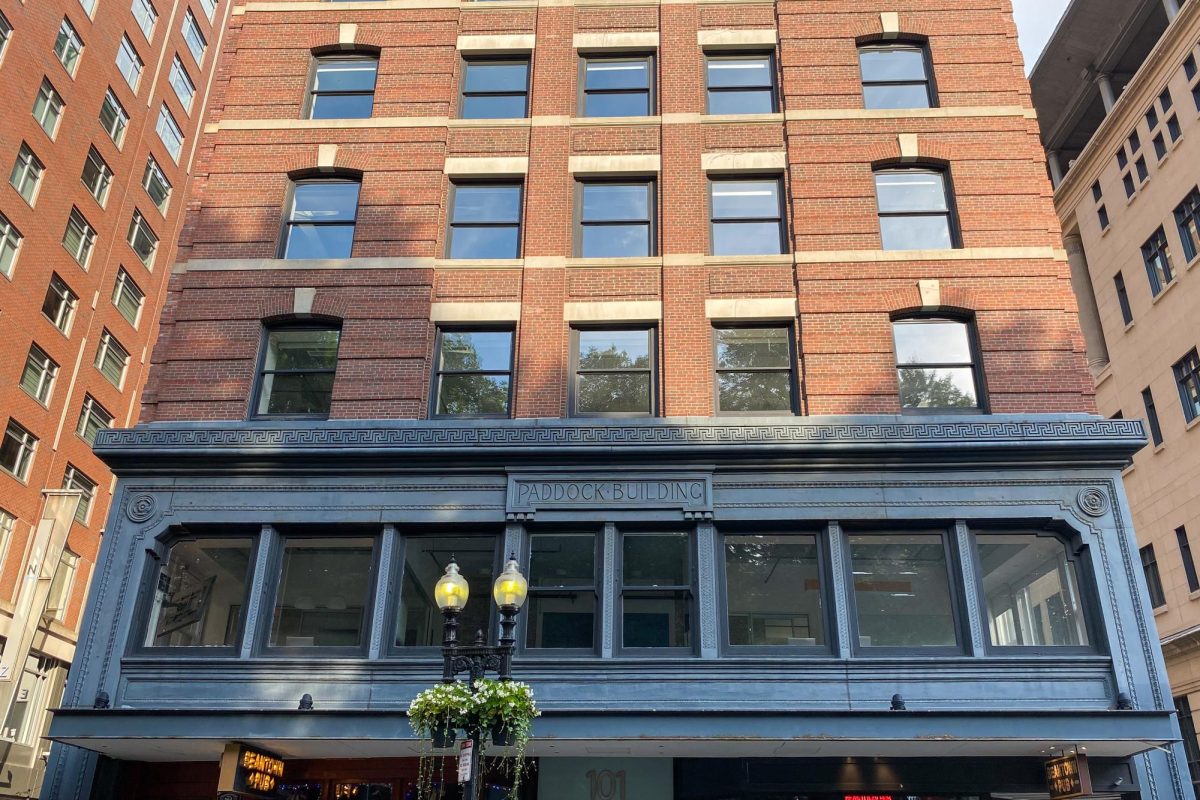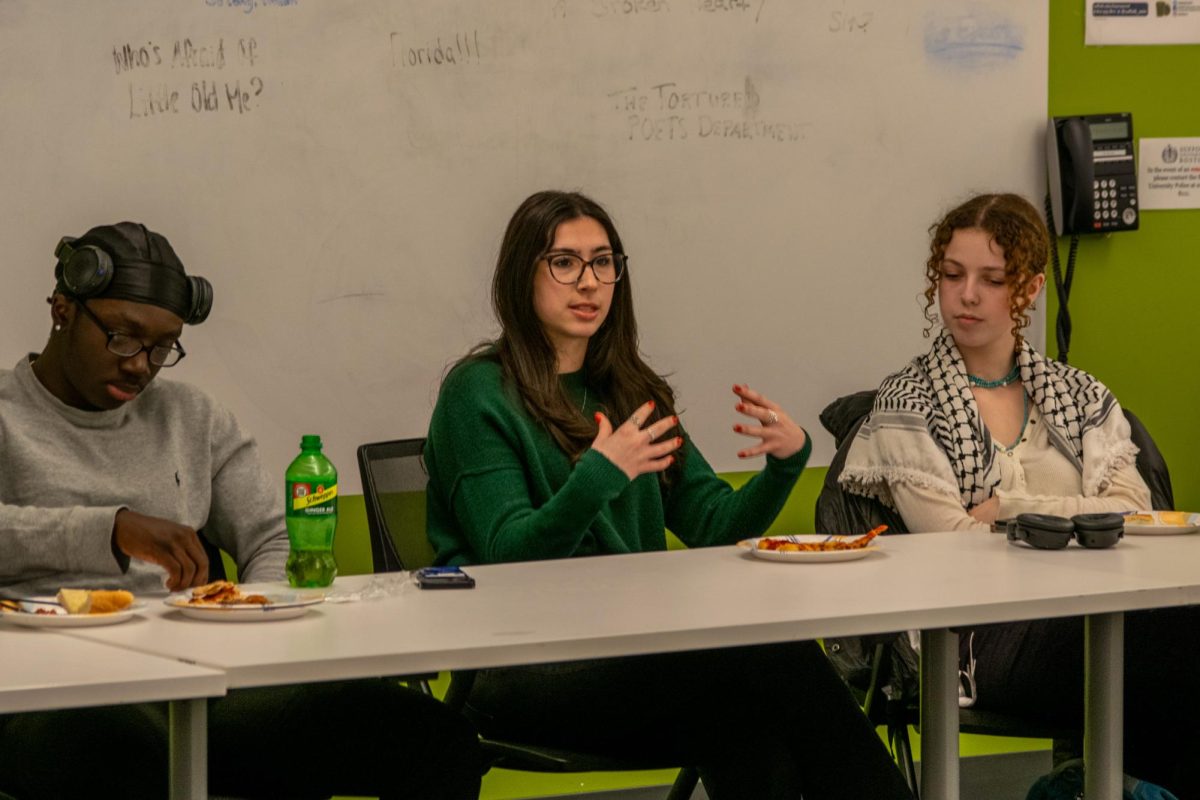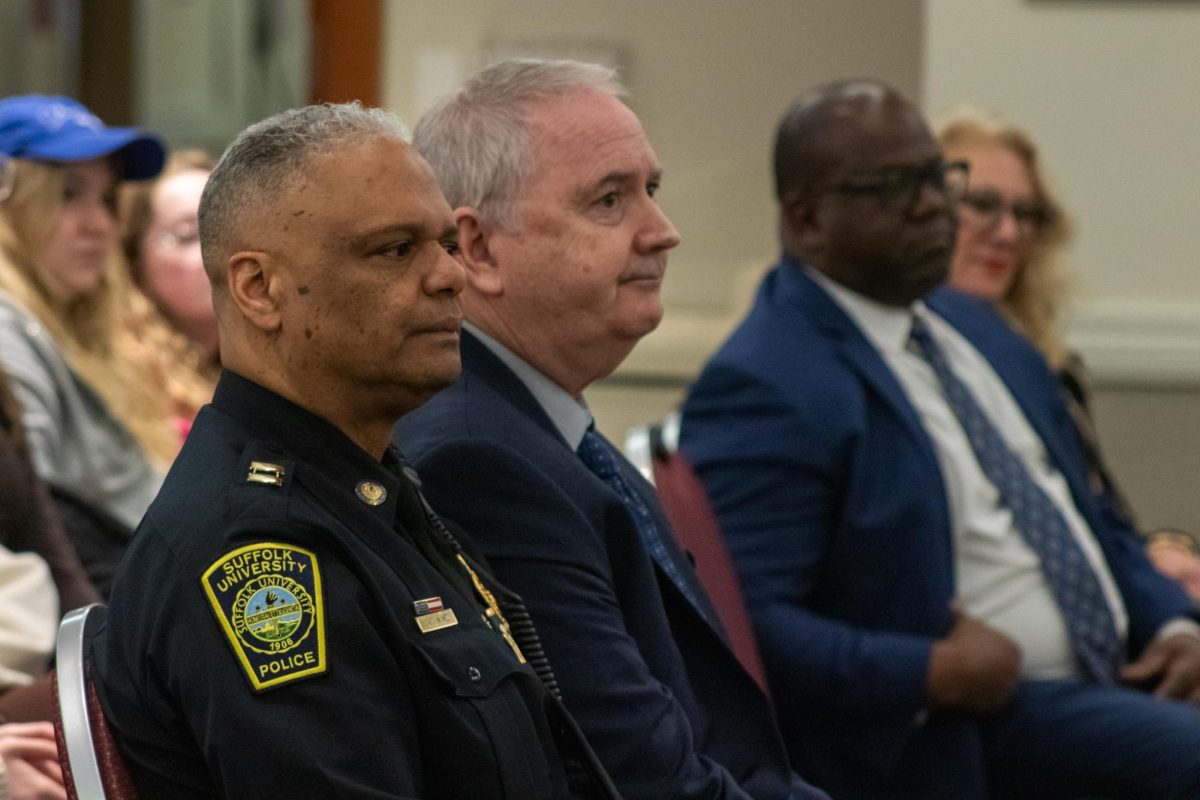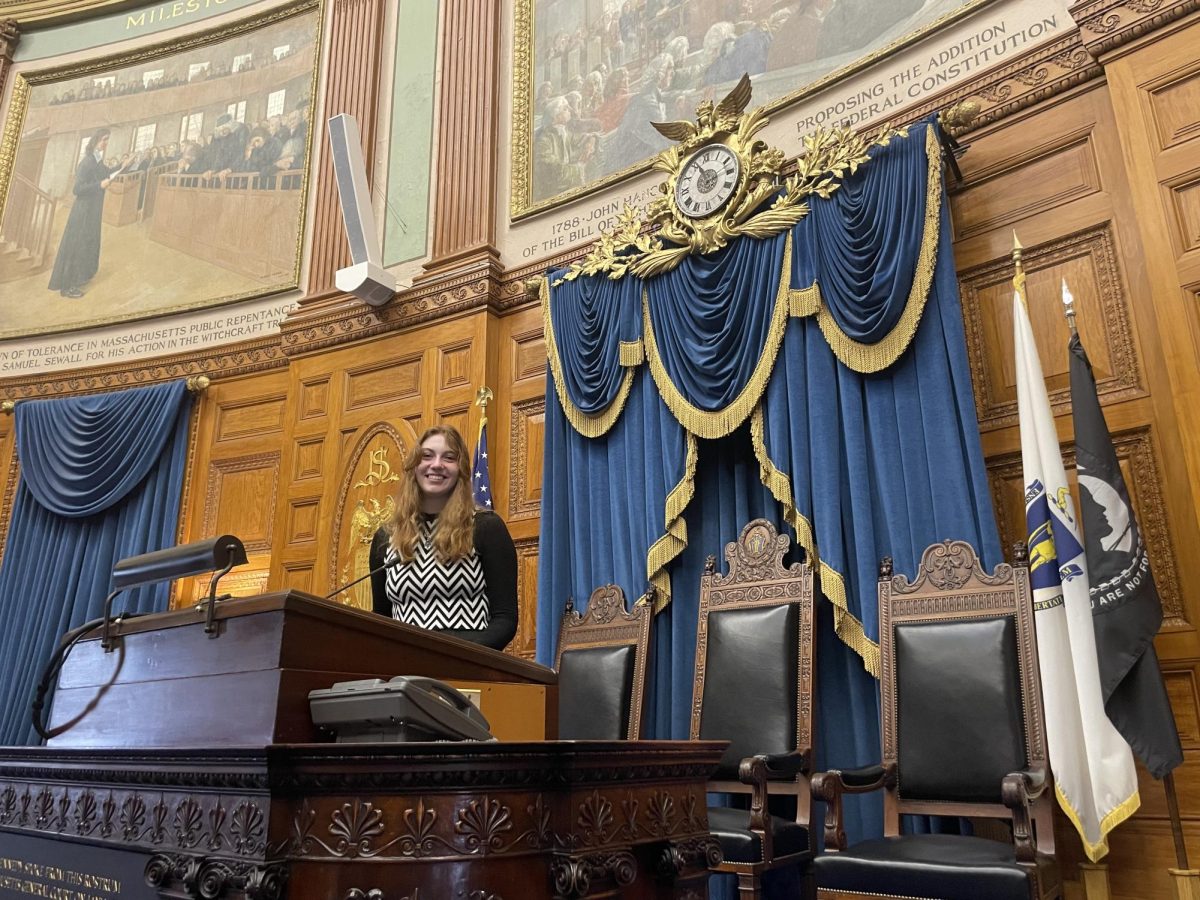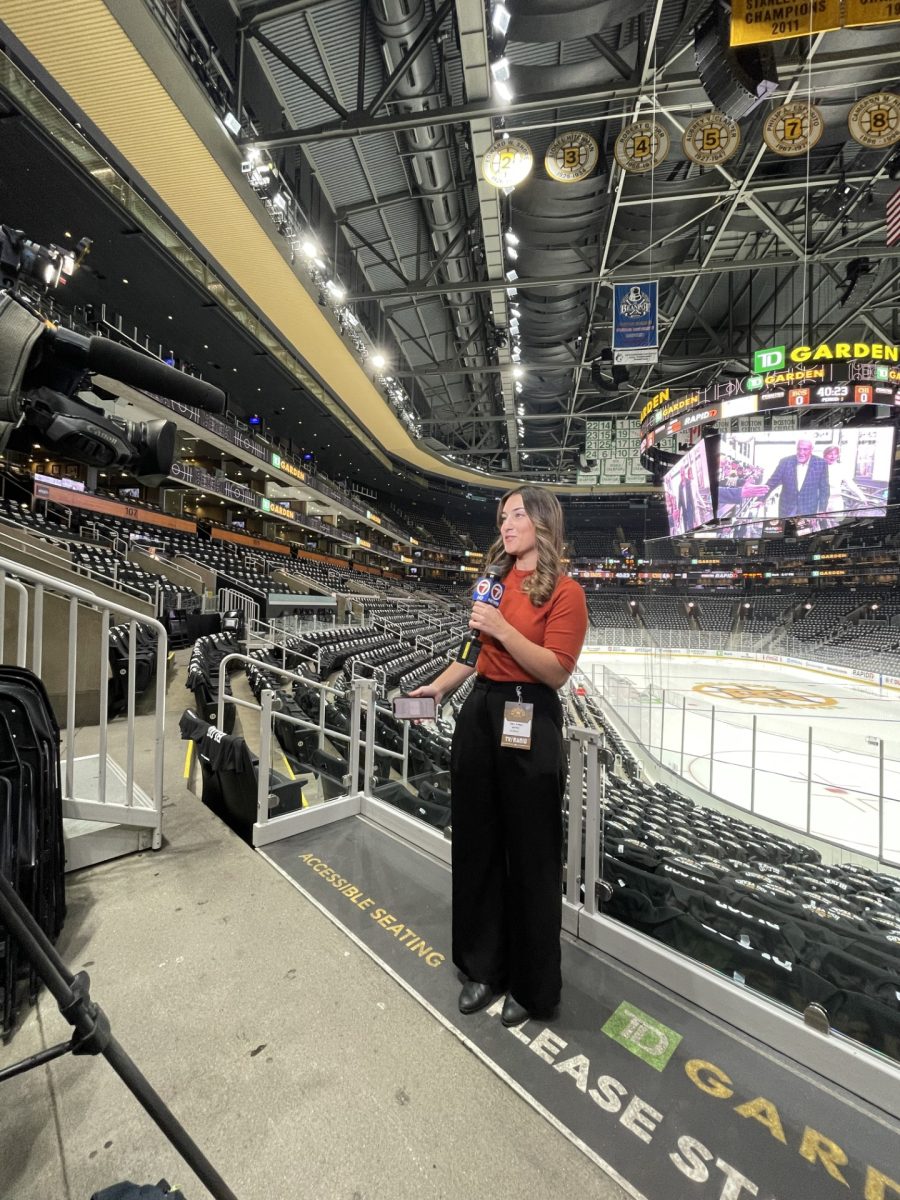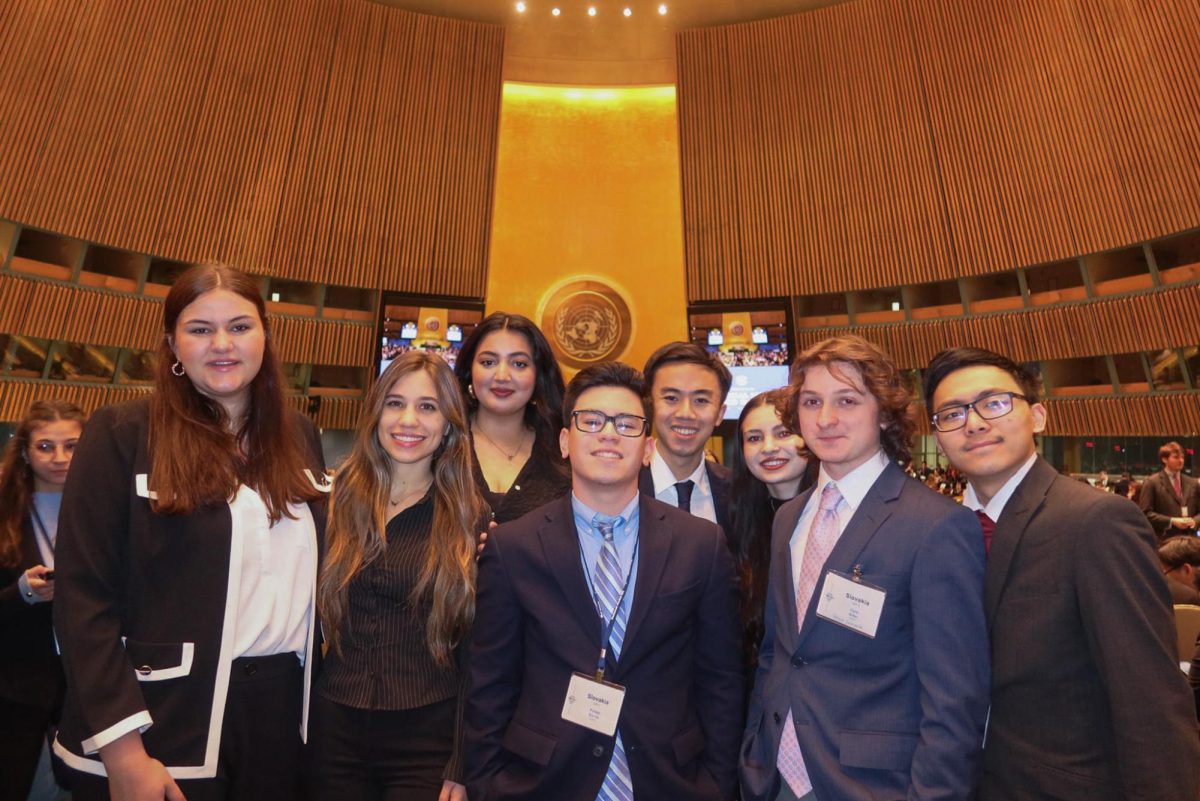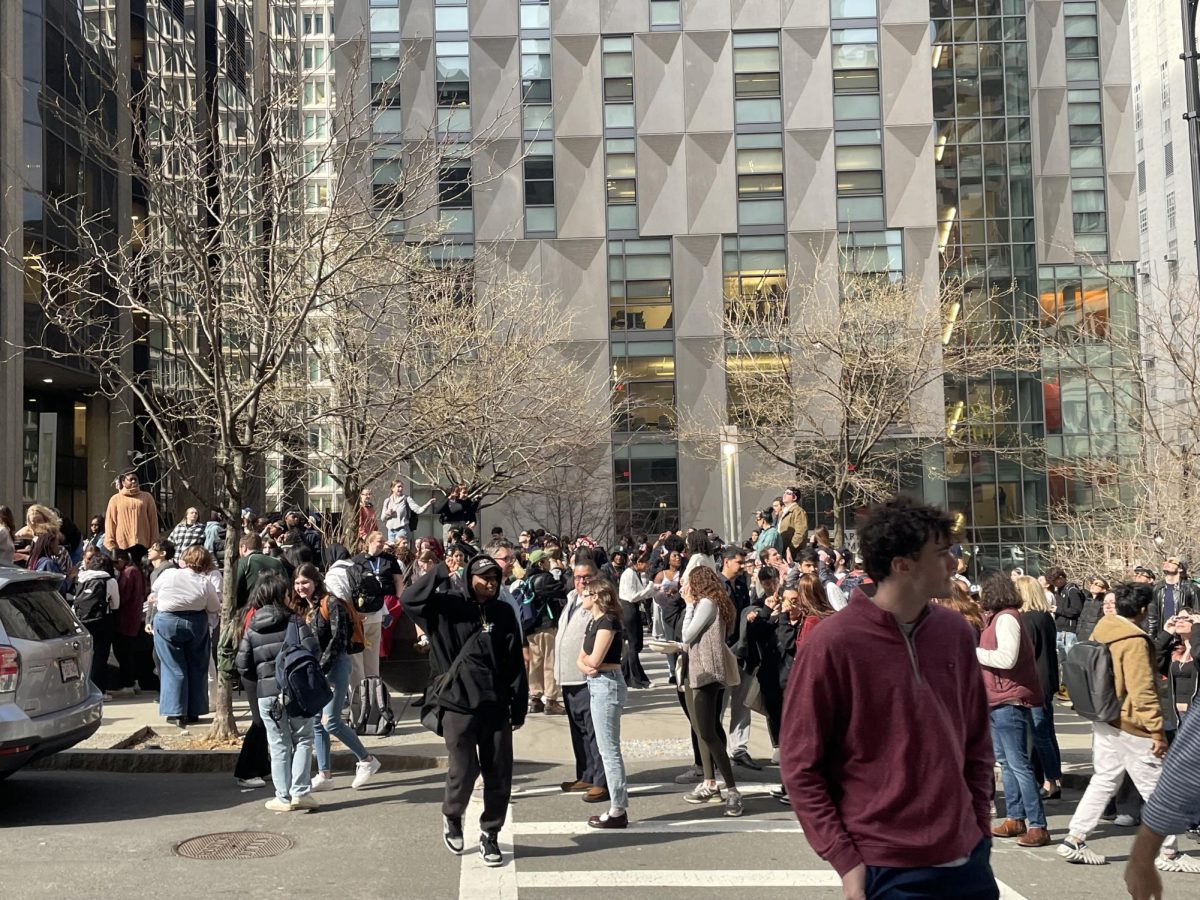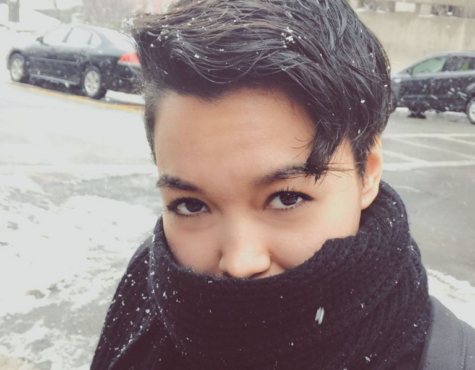Imagine a racist society with no racist people in it. Imagine a society where women are discriminated daily, but every single citizen is a raging feminist. As part of the Philosophy Colloquium Series, Saray Ayala-Lopez from the Massachusetts Institute of Technology and Universidad Carlos III de Madrid joined Suffolk’s philosophy department in a gripping discussion on how our choice of words can contribute to an oppressive society, as well as our roles and responsibilities that take part in it.
The problems arise when a group of people (the interlocutors) have a conversation on a sensitive topic that is audible to the strangers around them (the observers). The people in dialogue may be having a casual conversation on a topic that is seemingly uninteresting, until one of them makes a side comment or joke that can be interpreted as discriminatory to a targeted group. The other interlocutors do not add to the remark, but remain silent. Some of the observers may be unmoved by it, but others, who belong to the group in question, will be alerted and made uncomfortable. The interlocutors do not realize their impact, the observers do not step in, and those offended by their remarks add a tally to their mental chart of society’s negative behaviors.
Ayala analyzed the roles of each of the actors in such scenario: the person that said the harmful comment, the one affected by it, and the interlocutors that remained silent, or, in Ayala’s own words, “allowed the harmful speech to happen.”
It is true that we may not always be aware of the full extent of the damage our words can have, regardless of our intentions, inside jokes between the interlocutors, or actual beliefs. For the person in charge of saying the negative remark, all of these factors are important, but they are all things not always easy to detect from outside of the conversation. His or her beliefs may not be accurately reflected by their words at that moment, but the potential of the damage the words can cause to an observer is not weakened by ambiguity.
For the witnesses of the interaction, Ayala broke down the harm it can cause into four sections: direct harm if observer is targeted, the “absorption” of the belief that is understood, a “piling-up” effect to those affected, and the “perpetuation” of the negative belief into society. The most explicit one is the damage that can take place if any of the observers are part of the targeted group in the discussion or if they are close to someone who is. Witnesses are susceptible to “absorb” that belief that can be damaging to their own identity or their relation to others who fall under the discriminated group, and if surrounded by the same remarks constantly, can “pile up, reinforcing its dominance and normalizing it.”
“This is harmful to the whole society,” Ayala said, “not just a targeted person or observer.”
Now, what about the other people in the conversation that remained silent? They, Ayala argues, have the highest potential and responsibility to speak up and clarify any speech that can misconstrued as hate speech. Because the conversation includes them, and they are more aware of factors such as the beliefs of every interlocutor, inside jokes, and context of the conversation, they can respond with something to prevent any harm to be done on the observers. They can either take on a “backward-looking” approach and “cause harm by omission,” or a “forward-looking” approach and “block the oppression.”
Ayala commented that, as a society, we have separated actually doing harm versus allowing harm, but both can be equally destructive.
“We think we have a moral duty to not do harm, but we don’t think we have a moral duty to not allow harm. But to allow is to contribute to the oppressive system … Silence is an element of the complex structures and behaviors that oppress society.”
Even if the remark in question was not said with bad intentions, and even if all the parties involved in the conversation do not support the meaning that could have made its way to the observers, the failure to clarify, or, in another light, the poor choice of words could leave someone thinking you are a racist, sexist, homophobe, etc.
“What count is what the interlocutor does/omits, not what s/he believes,” she said.
Ayala said that it is the potential words can have to harm others that lead to classifying an entire society as oppressive.
“We could have a sexist, racist, and homophobic society, with no sexists, no racists, and no homophobes,” and this is because the words we choose to express ourselves may not accurately represent our beliefs.
“A society composed of good people is not necessarily a good society,” she said. “We need good practices and behaviors, too.”


